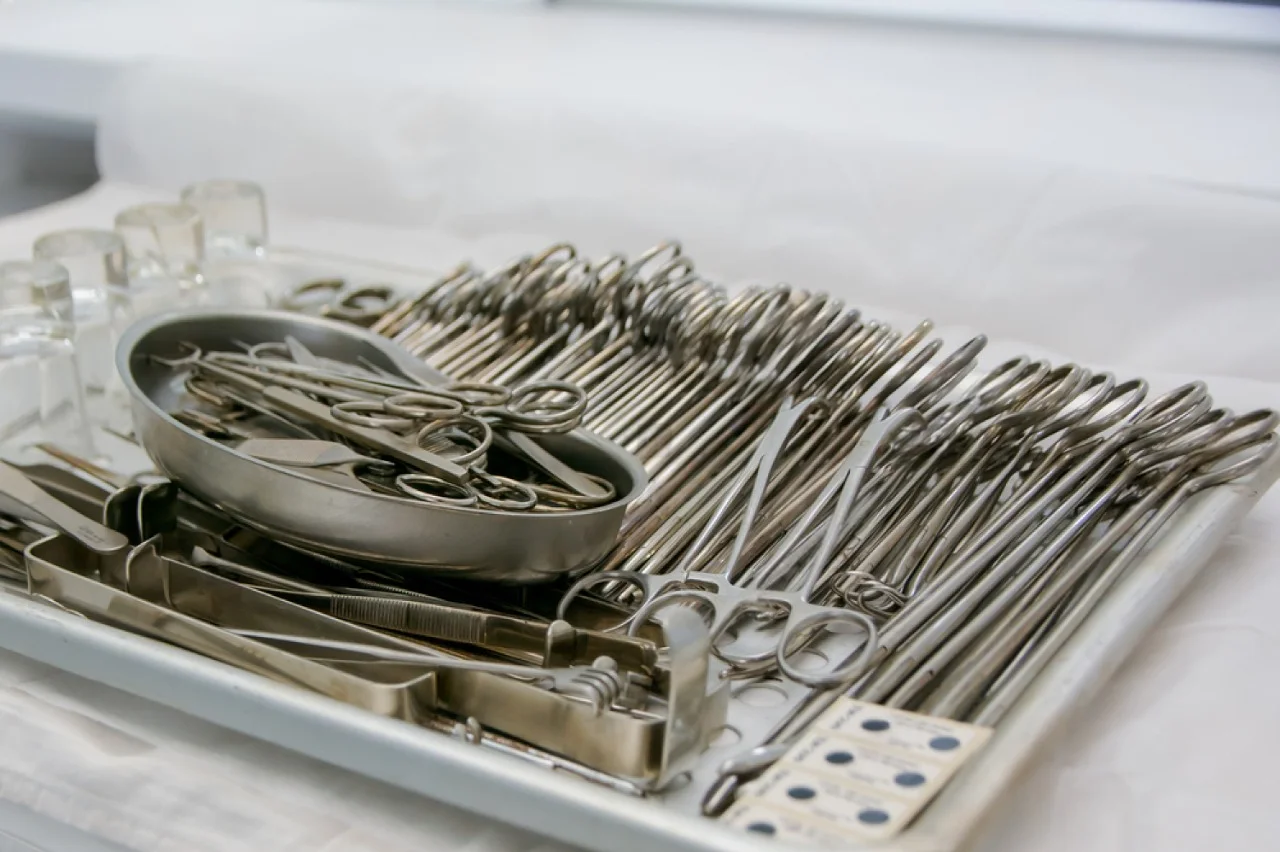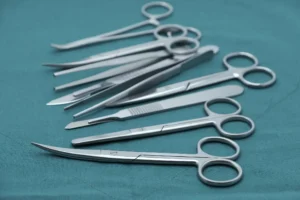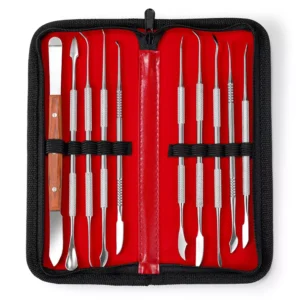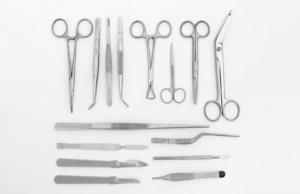Surgical Instruments – Healthcare Surgical Tools
In the sector of healthcare, surgical instruments are the unknown heroes that enable medical professionals to perform life-saving procedures with precision and efficiency. However, this blog delves into the diverse world of surgical instruments, their uses, and the importance of choosing high-quality tools, with a spotlight on Apto Enterprises as a trusted supplier in the USA.
The Backbone of Surgical Procedures – Surgical Instruments and Their Uses
Surgical instruments are indispensable tools in healthcare, facilitating everything from minor procedures to complex surgeries. Hence, their design and functionality are crucial for ensuring patient safety and successful outcomes. Understanding the variety and specific uses of these instruments provides insight into the intricate world of medical practice.
Categorization and Uses of Surgical Instruments
Surgical instruments can be broadly categorized into:
- General Instruments: These are versatile tools used in a wide range of procedures. Examples include forceps for grasping tissues, scalpels for making incisions, and retractors for holding back tissues. These instruments are the foundation of any surgical kit.
- Specialized Instruments: Designed for specific surgical procedures, these instruments cater to specialized needs. For instance, laparoscopes are used in minimally invasive surgeries, while arthroscopes are employed in joint surgeries. Their precision is vital for successful outcomes.
- Minimally Invasive Instruments: Advancements in medical technology have led to the development of instruments that reduce surgical trauma. Endoscopes, staplers, and trocars are examples that enable smaller incisions and faster recovery times.
The Evolution of Surgical Instruments
The evolution of surgical instruments reflects the progress of medical technology. From rudimentary tools made of bone and metal to modern, high-tech instruments, the field has come a long way. Today’s instruments are crafted from materials like stainless steel and titanium, ensuring durability and sterility.
Apto Enterprises: A Trusted Name in Surgical Instruments
When it comes to sourcing surgical instruments, reliability and quality are paramount. Apto Enterprises stands out as a leading provider in the USA, offering a wide range of products that meet the highest standards. Their commitment to quality and customer service makes them a preferred choice for healthcare professionals.
Materials and Maintenance: Ensuring Safety and Efficiency
The materials used in surgical instruments are chosen for their durability and ability to withstand sterilization. Reusable instruments are typically made from stainless steel, while disposable ones are often plastic-based. Proper maintenance and sterilization are critical to prevent infection and ensure instrument longevity.
Conclusion: The Importance of High-Quality Surgical Instruments
In conclusion, surgical instruments are the backbone of modern healthcare, enabling surgeons to perform their duties with precision and confidence. Choosing a reputable supplier like Apto Enterprises is essential for accessing high-quality tools that enhance patient care and surgical outcomes.
Explore Apto Enterprises
For healthcare professionals seeking reliable surgical instruments, Apto Enterprises offers a comprehensive selection to meet your needs. Visit the website to explore their products and ensure your surgical procedures are equipped with the best tools available.
By appreciating the diversity and importance of surgical instruments, we honor the dedication of medical professionals who rely on these tools to save lives and improve health outcomes.
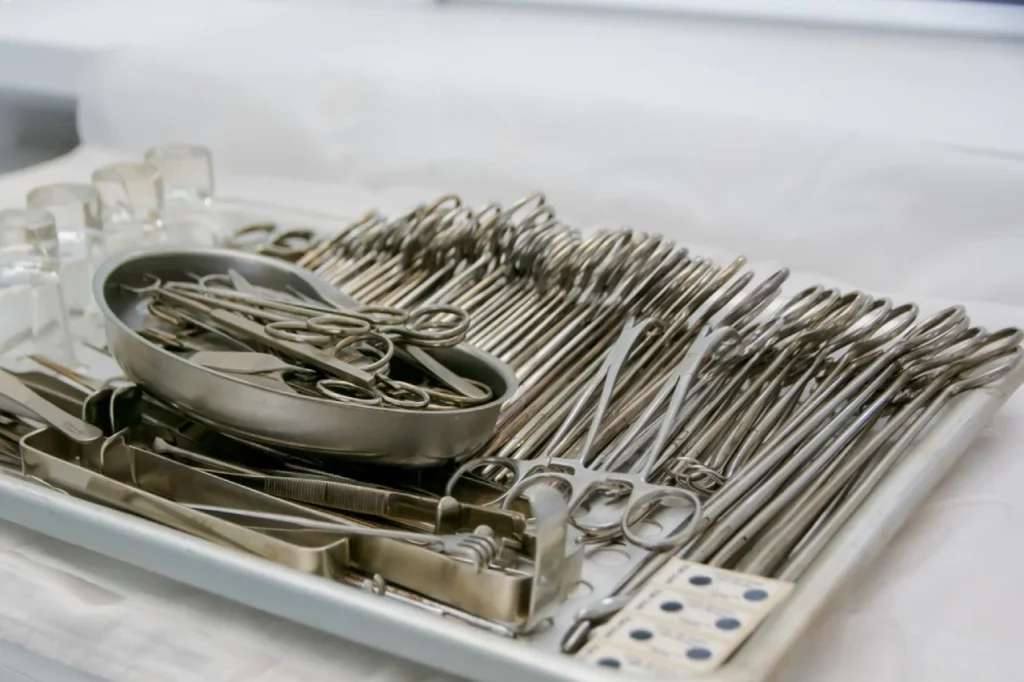
Summary of Commonly Used Surgical Instruments – Apto Enterprises
Scalpels:
- #10 Blade: For large skin incisions (e.g., laparotomy).
- #11 Blade: For precise or sharply angled incisions.
- #15 Blade: For finer incisions.
Scissors:
- Mayo Scissors: Heavy scissors for cutting suture (straight) or heavy tissue (curved).
- Metzenbaum Scissors: Light scissors for delicate tissue and blunt dissection.
- Pott’s Scissors: Fine scissors for blood vessel incisions.
- Iris Scissors: For fine dissection and cutting fine suture.
Forceps:
- Tissue Forceps: Non-toothed for fine tissue handling.
- Adson Forceps: Toothed for dense tissue handling.
- Bonney Forceps: Heavy for thick tissue handling.
- DeBakey/Russian Forceps: Atraumatic for tissue grasping.
Clamps:
- Crile Hemostat: Atraumatic for tissue or vessel grasping.
- Kelly Clamp: For larger tissues or vessels.
- Kocher Clamp: Traumatic for holding tissue to be removed.
- Allis/Babcock Clamps: For grasping intestine.
Needles & Suture:
- Needle Types: Tapered (soft tissue), Conventional Cutting (tough tissue).
- Suture Sizing: #5 to #11-0, higher numbers larger, more zeros smaller.
- Suture Types: Braided (e.g., Silk), Monofilament (e.g., Prolene), Absorbable (e.g., Vicryl), Non-absorbable (e.g., Nylon).
Retractors:
- Deaver Retractor: For holding back the abdominal wall.
- Army-Navy Retractor: For skin layers exposure.
- Weltlaner Retractor: Self-retaining for deep surgical sites.
- Richardson Retractor: For deep tissue structures.
- Bookwalter Retractor: Self-retaining, anchored to the table.
Suction:
- Yankauer Suction Tube: For surface and some intra-abdominal suction.
- Poole Suction Tube: For large fluid removal.
- Frazier Suction Tip: For ENT and neurosurgery.
Staplers & Clips:
- Linear Stapler: For ligation and anastomosis.
- Linear Cutter: For cutting and stapling.
- Circular Cutter: For reanastomosis of hollow viscera.
- Clips: For vessel ligation, metal or absorbable.
Energy Systems:
- Electrosurgery: For cutting or cauterizing tissue.
- Ultrasonic: For cutting and sealing tissue (e.g., Harmonic).
- Endostapler: For laparoscopic cutting and stapling.
Laparoscopic Instruments:
- Camera & Lens: For visualization, various angles.
- Light Source: Fiber optic for illumination.
- Insufflator: For creating abdominal working space.
- Trocars: Ports for instrument insertion.
- Laparoscopic Instruments: Grasping, retracting, cutting, etc.
Special Surgical Considerations:
- Cardio-Thoracic Surgery: Cardiopulmonary bypass, bronchoscope, VATS.
- Urologic Surgery: Cystoscope, ureteral stent.
- Orthopaedic Surgery: Arthroscope, orthopaedic implants, rongeur, bone saw.
- Robot-Assisted Surgery: Robotic surgical system, surgeon console, robotic arms.
This summary provides a comprehensive overview of the surgical instruments and tools commonly used in various surgical procedures, organized by category for ease of understanding and recall.
Shop Now and Experience the APTO Difference!
Visit our website today or contact us for more information. Your patients deserve the best, and so do you.
Don’t Miss Out!
Take advantage of our exclusive offers and stock up on the surgical instruments you need at the best prices in the USA. Whether you’re a seasoned surgeon or a growing practice, APTO has the tools to support your success.

